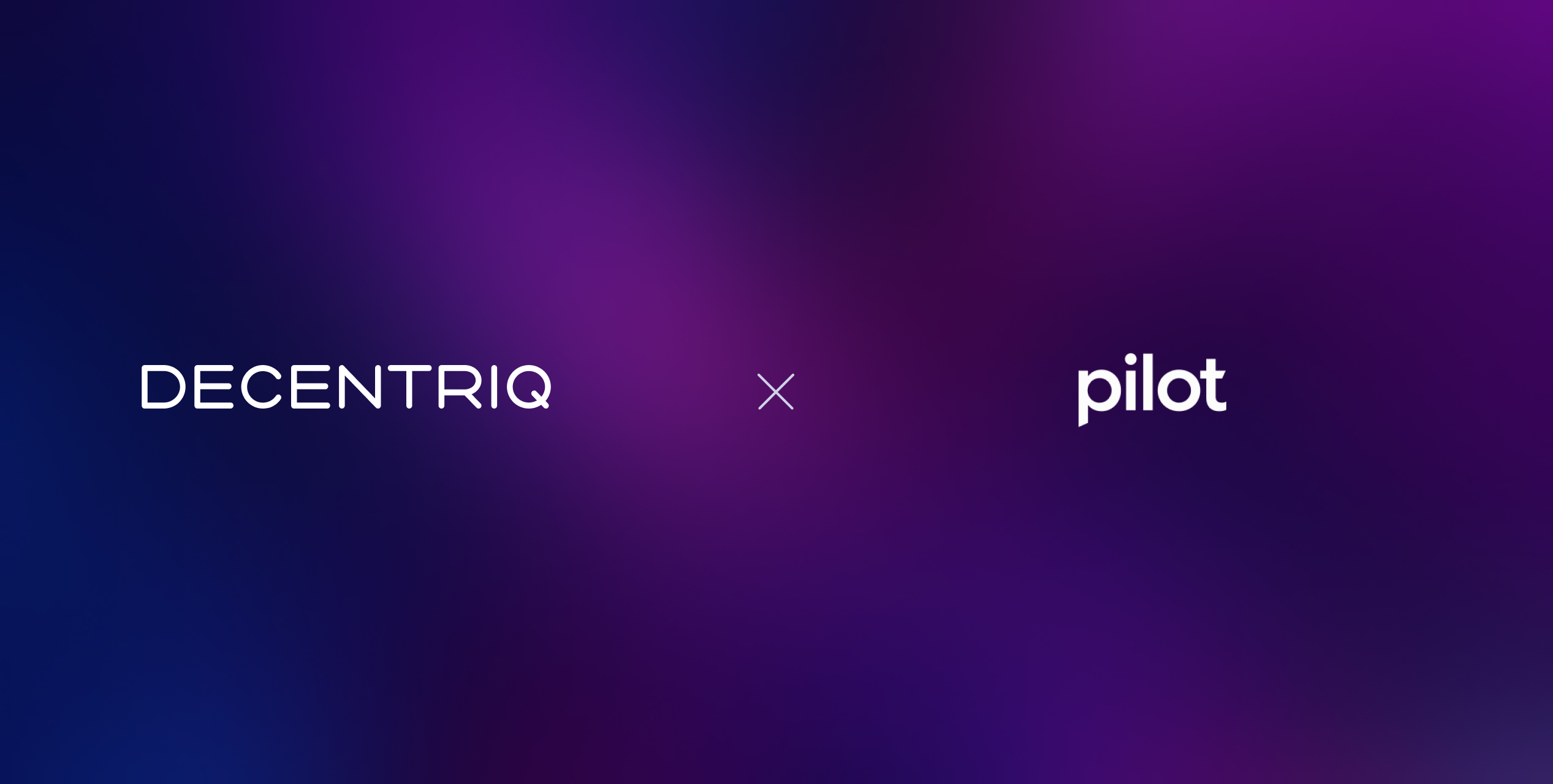

Post-cookie prospecting playbook
Our playbook breaks down the current options available to brands for targeting audiences on the open web — and how they stack up when it comes to reaching net new customers.

As data collaboration becomes essential for modern enterprises, the need to balance value extraction with strict privacy and compliance requirements grows increasingly urgent. Two solutions often considered are Snowflake and Decentriq. Snowflake is a well-known cloud data platform offering native and partner-based clean room capabilities. Decentriq, on the other hand, is a dedicated data clean room platform designed from the ground up for privacy-enhanced data collaboration.
So which is right for you? And if you're already using Snowflake, you may be wondering: is its clean room functionality enough for your needs? Or do your use cases call for something more purpose-built, like Decentriq’s data clean rooms?
This article explores both platforms in depth. We’ll compare their privacy models, ease of use, collaboration workflows, and more to help you determine which solution best fits your organisation’s security, analytics, and collaboration goals.
What is Snowflake?
Snowflake is a cloud-native data platform that allows businesses to store, manage, and analyse vast volumes of data in a single environment. Operating across major cloud providers like AWS, Azure, and Google Cloud, Snowflake is widely adopted by enterprises for its scalability, performance, and ability to unify siloed data sources.
It supports a variety of use cases — from business intelligence and machine learning to application development — by enabling seamless data access across multiple teams and regions. Snowflake’s appeal lies in its flexibility, ecosystem, and native SQL-based workflows familiar to most data professionals.
While Snowflake offers data clean room capabilities, it’s important to note that these are not the platform’s primary focus. Clean rooms are one feature within a much broader cloud data platform — one designed to support everything from data warehousing to AI/ML workloads, BI dashboards, and application development.
As such, its clean room capabilities are flexible, but may lack the purpose-built controls and privacy guarantees found in dedicated solutions like Decentriq.
Key features of Snowflake:
- Scalable cloud data warehousing across AWS, Azure, and GCP
- Native support for SQL, stored procedures, and role-based access
- Secure data sharing within and across Snowflake accounts
- Integration with major BI tools and machine learning frameworks
- Snowflake Marketplace for third-party data and native apps
- Data governance features like row access policies and masking
- Built-in support for multi-region and cross-cloud deployments
How do Snowflake’s data clean rooms work?
Snowflake offers data clean room functionality as part of its broader cloud data platform, either through its native capabilities or via partner-developed applications available in the Snowflake Marketplace. These clean rooms are designed to help organizations securely collaborate on sensitive data without directly exposing raw datasets.
At the core of Snowflake’s clean room architecture is its secure data sharing model. Data providers can share selected data with partners using controlled environments, enabling joint analysis while enforcing policies like row access controls and column-level masking. Snowflake supports pre-defined analysis templates, and partners can use stored procedures to run consistent, repeatable queries across shared datasets.
For example, two brands might collaborate in a clean room environment to run audience overlap analysis or measure joint campaign performance. The data remains in each partner’s own Snowflake account, with no data movement required. Snowflake ensures compliance through logging, fine-grained access controls, and support for differential privacy in some use cases.
That said, Snowflake’s clean room functionality:
- Works best within the Snowflake ecosystem — all parties typically need to be Snowflake users
- Requires a level of technical proficiency, especially for managing SQL, stored procedures, and governance controls
- Offers limited support for non-Snowflake users or cross-cloud collaborations
- Relies on trust between parties to ensure personally identifiable information (PII) isn’t misused, since data is decrypted during execution
To expand its offering, Snowflake has launched a Native App Framework, allowing partners to build custom applications (e.g., Habu or InfoSum integrations) that add more advanced clean room features — but these often come with added complexity, cost, and reliance on third-party tools.
In short, Snowflake’s data clean rooms are flexible and tightly integrated for users already in the Snowflake ecosystem, but may fall short for companies seeking plug-and-play secure collaboration with external or non-technical stakeholders.
What is Decentriq?
Decentriq is a dedicated data clean room platform designed specifically for secure and privacy-preserving collaboration between organisations. It enables companies to gain valuable insights from sensitive or proprietary datasets — such as customer data, transaction data, or personally identifiable information — without ever exposing the underlying data to other parties or even to Decentriq itself.
The platform leverages confidential computing, a hardware-based security approach that ensures data remains encrypted even during analysis. This makes Decentriq uniquely equipped to meet the highest levels of privacy and compliance, including GDPR and other sensitive regulations.
Decentriq is also built with ease of use in mind, offering a web-based interface accessible to non-technical business users and supporting custom and pre-defined analysis templates. This enables secure data collaboration across departments, subsidiaries, or external partners — all without compromising data privacy.
Key features of Decentriq:
- Confidential computing–powered clean rooms with encryption-in-use
- Built-in compliance with GDPR, EU/Swiss regulations, and data ethics by design
- Large network of premium publishers, especially in the DACH region
- First-party and third-party data collaboration
- Web-based platform accessible to non-technical business users
- Secure multi-party collaboration across clouds and platforms
- Strong European partner network and thorough onboarding support
Snowflake vs Decentriq – how do they differ?
While both platforms enable data clean room use cases, they differ significantly in architecture, privacy guarantees, and ease of use.
Decentriq vs Snowflake – how do they compare?
Pricing
Snowflake:
Pricing is based on compute and storage usage. While flexible, this can become unpredictable depending on query complexity and data volumes. Additional costs may apply when using partner apps for clean rooms.
Decentriq:
Offers transparent pricing models tailored to secure collaboration use cases. Pricing strongly aligns with the business value delivered, typically reflecting:
- the number of parties collaborating
- the number of markets where the solution is deployed
- the analysis complexity
- support levels
Predictability and privacy assurance are built-in.
Integrations
Snowflake:
Tightly integrated with the broader Snowflake ecosystem and partners in the Snowflake Marketplace. Best suited for organisations already using Snowflake as their data platform.
Decentriq:
Works independently of Snowflake. Easily connects with multiple data sources and platforms, making it ideal for cross-organisation collaboration across different systems and clouds, specifically between organizations who chose different cloud partners, like collaboration between Snowflake and Databricks customers.
Ease of set up / onboarding
Snowflake:
Setup requires in-depth Snowflake knowledge. Configuring access policies, secure views, and templates may need support from technical teams or third-party consultants.
Decentriq:
Built for fast onboarding, even for non-technical users. The web app guides users through setup, with Decentriq offering hands-on service to ensure compliance and success from day one.
Ease of Use
Snowflake:
Powerful for technical users familiar with SQL and Snowflake architecture. Less accessible for non-technical stakeholders unless custom interfaces are built.
Decentriq:
Web-based interface enables non-technical users to collaborate securely and independently. Pre-defined templates simplify standard analysis like audience overlap or fraud detection.
Core purpose and use cases
Snowflake:
General-purpose cloud data platform that supports data clean rooms via configuration and partner tools. Strong for internal collaboration within Snowflake environments.
Decentriq:
Purpose-built for external collaboration on sensitive data, particularly across business units, subsidiaries, or partner organizations where data privacy and compliance are non-negotiable. Decentriq is especially strong in:
- Media and advertising collaborations, where it enables partners to run audience overlap analysis, extract audience insights, and activate privacy-safe targeting
- Cross-border data collaboration that adheres to strict privacy regulations such as GDPR
- Secure, compliant analytics between pharmaceutical companies and academic institutions
Privacy and security
Snowflake:
Provides strong logical controls and secure data sharing via row access policies and data masking.
Decentriq:
Built with privacy at the core. Confidential computing ensures that not even Decentriq can access your data. Ideal for regulated industries and privacy-sensitive use cases.
Data clean room capabilities
Snowflake:
Supports clean rooms via native tools and third-party apps. Capabilities vary based on configuration and technical setup.
Decentriq:
Offers a full clean room environment by default, including privacy-enhancing technologies like differential privacy and encryption-in-use.
Analysis capabilities
Snowflake:
Highly flexible with SQL and custom applications. Best suited for technical teams that want complete control over analysis pipelines.
Decentriq:
Provides both customizable and ready-made analysis templates for common collaboration scenarios. No coding required.
Scalability
Snowflake:
Exceptionally scalable in terms of compute and storage, especially for existing Snowflake users.
Decentriq:
Scales efficiently across regions and organisations, particularly for collaborations involving sensitive data across entities.
Interoperability
Snowflake:
Works best for users already within the Snowflake ecosystem. Less suited for involving non-Snowflake users.
Decentriq:
Built for interoperability. Enables collaboration across multiple platforms, clouds, and data sources — without forcing standardisation on Snowflake.
Product roadmap
Snowflake:
Continuously evolving with new features via native apps and partner integrations. Clean rooms are an emerging focus, but not Snowflake’s primary product.
Decentriq:
Laser-focused on being the leading privacy-preserving clean room platform, prioritizing compliance, UX, and advanced analytics for secure collaboration.
Who uses each platform?
Both Snowflake and Decentriq offer powerful data collaboration tools, but they serve distinct user needs and organizational structures.
Snowflake is a natural fit for:
- Technical teams already embedded in the Snowflake ecosystem
- Data engineers and analysts running SQL-based workflows
- Enterprises needing centralized access to internal data for BI or analytics
Decentriq is designed for:
- Cross-company data collaborations (e.g. between brands and agencies, pharma and research partners)
- Legal and compliance-conscious industries like healthcare, banking, or government
- Non-technical business users who need secure data insights without data analysis capabilities
If your organization frequently collaborates across legal entities or needs to protect sensitive customer or transaction data, Decentriq offers a purpose-built, privacy-first solution. On the other hand, Snowflake is well-suited to centralized analytics within a single enterprise or business unit.
Why Decentriq leads on European compliance and data sovereignty
For organizations operating in Europe — or collaborating with European partners — regulatory compliance and data sovereignty are more than checkboxes; they are strategic imperatives.
Decentriq, headquartered in privacy-conscious Switzerland, is uniquely positioned to meet the stringent demands of GDPR, Swiss data protection law, and emerging EU-wide frameworks around cross-border data sharing. It achieves this through a privacy-first architecture powered by confidential computing, ensuring that sensitive information remains encrypted at all times, even during processing. Read more about how confidential computing aligns with GDPR here.
This contrasts with platforms like Snowflake, which offer policy-based access controls but still decrypt data during computation, requiring trust in governance rather than enforcing privacy by design.
Decentriq’s platform is especially well-suited for:
- European enterprises and public-sector entities
- Multinational corporations working across data jurisdictions
- Industries with strict compliance standards (e.g. finance, healthcare, government)
- Partnerships where sharing sensitive data across borders must be tightly controlled
Combined with Decentriq’s growing network of European partners, this makes it an ideal choice for companies that want to enable secure data collaboration while remaining fully aligned with EU data privacy expectations and sovereignty goals.
Decentriq vs Snowflake – which is best for you?
Choose Decentriq if your organisation prioritises maximum data privacy, ease of collaboration across platforms, and working with partners outside your own technical stack. It’s especially suited to industries with sensitive data and strict compliance needs, such as healthcare, finance, and advertising.
Choose Snowflake if you’re already heavily invested in the Snowflake ecosystem, have a capable data engineering team, and are looking to build clean room functionality internally or through third-party apps.
Each platform brings strengths depending on your internal capabilities and privacy requirements. The best fit depends on your use case.
Decentriq: Best for privacy-first collaboration at scale
Decentriq is the best choice when:
- You need privacy-enhanced data collaboration with external partners.
- You're working with highly sensitive or regulated data.
- You require a platform that’s easy to use for both technical and non-technical teams.
- You want to collaborate beyond a single cloud or ecosystem.
Decentriq’s powerful combination of confidential computing, intuitive design, and a strong European service network makes it a trusted partner for enterprises serious about secure data collaboration.
Explore the platform or book a demo to see how Decentriq fits your use case.
References
Post-cookie prospecting playbook
Our playbook breaks down the current options available to brands for targeting audiences on the open web — and how they stack up when it comes to reaching net new customers.

Related content
Subscribe to Decentriq
Stay connected with Decentriq. Receive email notifications about industry news and product updates.




